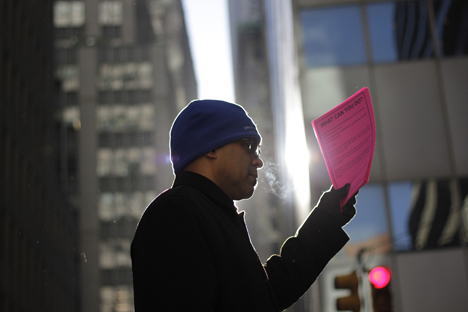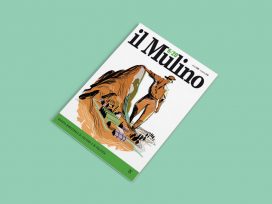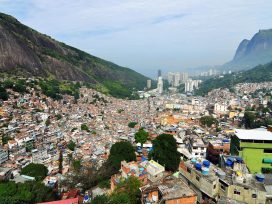It’s exciting to see one of Henri Lefebvre’s last essays, “Quand la ville se perd dans une metamorphose planétaire” (1989) finally make it into English, entering Anglophone discussion and debate for the first time. One could doubtless quibble with the idea of se perdre becoming “dissolving” – instead of the more prosaic, less dramatic to get lost, to go astray, or to lose its way; but the vital thing is that Lefebvre’s sense and sensibility remains intact throughout “Dissolving city, planetary metamorphosis”, and for that Neil Brenner and his crew should be commended.

Occupy Wall Street, 6 March 2012. Photo: Timothy Krause. Source: Flickr
Like a lot the old guy wrote – hey, almost everything – the essay raises as many questions as it supplies answers. It’s fascinating to see how his vision of the right to the city had matured during the period 1967-1989, from its initial airing on the eve of Parisian student eruptions to the eventual tumbling of the Berlin Wall, from exorcizing demons at the Pentagon to tanks rumbling into Tiananmen Square. Lefebvre’s essay is prescient (and downbeat) about how upsizing cities produce downsizing work, how planetary urbanization unleashes more perils than possibilities, and how that time-served ideal of city dwellers becoming solid citizens seems irrevocably severed.
There are plenty of angles, plenty of viewpoints, from which to tackle this brief yet dense essay. But here I want only to deal with one aspect of it: its final line: “The right to the city implies nothing less than a revolutionary conception of citizenship.” In what follows, I want to riff on this line, give my own take on what it might mean today, on what it ought to mean today, twenty-five years down the line. Lefebvre is adamant about the need “to reformulate the framework for citizenship”, given the unsettling nature of capitalist urbanization, that capital constantly circulates, that money values settle everywhere, that people get inexorably displaced, extricated from familiar territories, deported to unfamiliar banlieues.
But just what kind of right is revolutionary citizenship? Is such citizenship a right at all? Clearly, it’s a citizenship beyond any notion of passport: it isn’t about official documents; it isn’t any legal right, bestowed upon us by institutions of the bourgeois nation-state. In this light, maybe we need to reformulate the whole framework of rights, come clean about the rights question, reformulate it alongside the very notion of the city itself. Working this through might then help us derive a fresh notion of what Lefebvre’s revolutionary watchword – the right to the city – might really still mean, might actually inspire us to create today.
We no longer have rights
Let me begin with a hypothesis, one I’d like to think Henri might agree with: revolutionary citizenship is not a right: it has to be taken, recreated anew, struggled for – not rubber-stamped. For revolutionaries, for people concerned with real social change, with changing societies, with inventing new urban life, we might say the rights question got buried in 1848, destroyed by bourgeois gravediggers. The above hypothesis compels us to consider that we no longer have rights, shouldn’t expect any, should wise up to the fact that nobody in power or authority is ever going to acknowledge our rights, grant us those rights we thought were ours, thought would become enshrined in our culture, especially after the 1789 French Revolution. But they didn’t get enshrined.
In 1791, we had Thomas Paine’s The Rights of Man and of the Citizen kindle our hopes of such popular enfranchisement. And then, after overthrowing the French Monarchy, Robespierre, in 1792, tried to uphold these ideals, tried to endorse them at the National Convention, the first revolutionary assembly of “popular will”, run by left-leaning bourgeois Jacobins. Robespierre took positions of great virtue and astonishing courage concerning human rights. He was against martial law, against the death penalty, against slavery in the colonies; he was for universal suffrage, for the right to petition, for freedom of the press, for civic rights of actors and Jews. But the 9th Thermidor backlash in 27 July 1794, the right-swinging counter-revolution against Jacobin liberal democracy, trampled over hopes of any Bill of Rights, hopes that capital and labour might establish a just social contract, that an emergent industrial working class, together with artisans and peasants, might one day find societal harmony with a progressive bourgeoisie.
Between 1794 and 1848, working class people in Europe retained these hopes. The workers’ movement of 1830 tried again to consummate these hopes; it failed. In 1848, between February and June, a new generation of workers, still demanding their rights, took to the streets en masse, across all Europe as well as in France; again they failed, again they found their rights bloodied in the streets. This fraught era from 1830 to 1848 tried to reset the balance between bourgeoisie and worker. It made a last-ditch effort to salvage the rights issue, to fulfil the latent promise of The Rights of Man and of the 1789 revolution. The “June Days” of 1848 were the last popular reaction to Thermidor reaction. In a way, insurgents back then still played a bourgeois game, still somehow believed in the rules to this bourgeois game. And yet, again, the movement failed: the promise of bourgeois citizenship was drowned in the icy waters of conservative recidivism. The awful truth: the promise of liberal-bourgeois rights had been a big lie all along. Now everybody knew it, everybody who had to know it. “The revolutionary storm of 1848”, Engels wrote in 1890, in an added footnote to the Communist Manifesto, “swept away this whole shabby tendency”. It had “cured its protagonists”, Engels said, “of the desire to dabble further” in speculative beliefs of “eternal truths”.
Maybe it’s no coincidence that 1848 was the year when the Communist Manifesto appeared. With stirring, thunderous prose, Marx declared the holy profane; no matter what we thought, no matter what we were demanding, there were no longer sacred ideals, no longer rights to shelter behind, to invoke to protect ourselves; there was nobody to whom “we,” the people, could appeal, especially when brutalized, especially when that brutality was actually lawful, actually an intrinsic feature of (capitalist) society’s everyday functioning. Hitherto sentimental notions, hitherto time-honoured beliefs, hitherto respected occupations – all of them, Marx said, had been “stripped of their haloes.” “In one word, for exploitation, veiled by religious and political illusions,” the bourgeoisie “has substituted naked, shameless, direct, brutal exploitation.” “All that is solid melts into air”, Marx wrote, famously, “all that is holy is profaned, and man is at last compelled to face with sober senses, his real conditions of life, and his relations with his kind”. Could it be, then, that “sober senses” means having no illusions about rights, that they’ve melted into air, that we should now face up, unflinchingly, to our real conditions of neoliberal social life?
A cry and demand for urban life
When he’d waded in in 1967, appealing to the right to the city, Lefebvre at once inspired and muddled the debate. He’d inspired and confused the issue on both counts, at the level of rights, on the one hand, and of the city, on the other. He’d confused things because at the same time as he demanded rights to the city he was denouncing the city. He’d said that the right to the city was a cry and demand for urban life, for the right to centrality, for the right to participate as active subjects in urban history, not be moved on or pushed aside as passive objects. But he’d also said that the city was a pseudo-concept, that a newly emergent urban society was predicated on the ruins of the city. The city was opening up, the oyster bursting out of its shell – as geographer Jean Gottmann put it in the early 1960s in Megalopolis. Monocentrality now gave way to polycentrality, to amorphous urban forms, to expansive and invasive urban forms, ones unexplainable via old paradigms; it was hard to know anymore which centrality Lefebvre was talking about. The city now devoured the countryside, the countryside ruralized the city; the traditional city and traditional countryside melted into air, congealed into something qualitatively different, into something quantitatively unnerving. Lefebvre said a new paradigm was required, a new way of conceptualizing “urban society”, a new way of conceptualizing the right to this new urban society, a new citizenship for this urban society, an urban citizenship, a revolutionary urban citizenship.
Revolutionary citizens are citizens without rights, disenfranchised urban citizens the world over. We somehow know one another, identify with each other, wherever we go. We speak in differing tongues yet have things in common, usually sharing a common enemy. We have collective hopes and mutual affinities, a similar structure of feeling, a feeling of being on the receiving end of somebody else’s doing, frequently somebody rich and powerful’s doing. As revolutionary citizens we carry shadow passports. Our shadow passports express a citizenship waiting in the wings, a solidarity haunting the mainstream, floating through frontiers, across designated checkpoints, sometimes even straying between academic disciplines. For holders of shadow passports, homeland securities and border control agencies know nothing about our true identity; official maps rarely tell us where to go: they’re useless in helping us re-orientate ourselves, in helping us find ourselves, in helping us discover one another.
“…dances of a different sort might be continued in the streets”
The idea of a shadow passport is a major motif of Andrei Bely’s revolutionary masterpiece, Petersburg, written in the early 1910s. It tells the story of the run up to the aborted Russian revolution of 1905, a little more than a decade prior to the Bolsheviks’ eventual triumph. Bely’s text is symbolic as well as slapstick, hilariously comical as well as intensely poetical. All the while an atmosphere of hysteria prevails – political hysteria. Everyone knew the times were a-changing, that politics and intrigue wafted in the air, that “momentous events were rumbling,” that something was about to give, soon. But what? Bely never quite says; he never gives readers a straight answer. His story is one in which “everyone feared something, hoped or something, poured into the streets, gathered in crowds, and again dispersed…” (This feature isn’t unlike ours today.)
Bely’s is a twilight drama of political intrigue, a portrayal of a phantom world in which the invisible stalks the visible. Masked red dominoes and would-be parricide bombers – Russian radical history is full of inter-generational strife, of sons forever duelling fathers – dart in and out of the shadows; revolutionaries jostle with reactionaries, nihilists with government nobodies; Unknown Ones are transformed into Elusive Ones, double agents into secret agents, secret police into agents-provocateurs. Bely adds a fourth dimension to things, makes the make-believe all-too-real. Apollon Apollonvich, the reactionary right-wing senator, warns of those “mangy little fellows” scheming behind the scenes. (Apollon’s wayward anarchist son, Nikolai, is one of these mangy figures; he’s plotting behind the scenes to blow dad up, with a bomb in a sardine can.) Shady characters like these, Apollon Apollonvich says, are “essential figures at this time of transition,” figures who, apart from anything else, must be kept out the dancehalls, because “if these apparently innocent dances were permitted, dances of a different sort might be continued in the streets.” Mangy little dancing figures are in the vanguard of the incipient revolutionary struggle; they’re the mainstay of the shadow citizenry. But who are these little mangy fellows today?
Maybe it’s not hard to conceive the shadow passport citizenry comprising a disenfranchised constituency who now haunt the global banlieue. A lot reside in the core yet live out in the periphery, feel the periphery inside them, identify with the periphery. They’re the superfluous ones, the ninja generation, the jobless and incomeless and assetless, the Indignados on the streets of Spain, Occupiers denouncing unearned plenty, Greeks who feel the brunt of the Troika, of the fiscal probity of European Central Bankers, of the EU technocrats and bureaucrats, of middle-managers and accountancy governors. Of course, there are quite a few Greeks, those cheering for the Golden Dawn, who cling onto their “official” passports for dear life, who invoke ultra-nationalist purity and neo-Nazi necessity; but shadow passport holders embrace a very different citizenship, a very different internationalism. They’ve more in common with dispossessed Arab and African youth in French suburbs, with Palestinians lobbing rocks at Israeli tanks, with Detroiters beholden to “Emergency managers”, with Brazilians protesting public transport hikes, with looters in Tottenham, with anybody and everybody who’ve had their homes repossessed, who’ve defaulted on their loans, who are indebted, whose pensions are kaput, whose immediate future is kaput. The shadow passport citizenry is a territorial reserve army of foot soldiers, a relative surplus population of ordinary people, who want in but are forced out; they’re often defiant yet somehow disunited, disgruntled and raging in a global civil war of austerity and high frequency piracy.
The politics of the encounter
We’ve seen this shadow citizenry step of the shadows in recent times, enter into the public light of day, into the public squares and streets. They’ve expressed themselves as shadow citizens of the world, gathering in crowds, yet always, somehow, dispersing again. In my book The Politics of the Encounter (2013), I tried to figure out, inadequately, how these crowds of people come together, what makes them tick, what makes them fall apart, what kind of spaces they need, what kind of spaces they create. Where are participants now? I suggested that the notion of encounter is crucial for any shadow citizenry, crucial for helping it affirm its collective identity, crucial for helping it affirm its collective vitality, its collective coming together, its collective staying together. What’s encountered are elements expressing affinity and complementarity, a readiness to collide and interlock, to take hold like water becoming ice, like mayonnaise emulsifying, like milk curdling, like people bonding and blending politically on the street. “Every encounter is aleatory”, says Louis Althusser, in a beautiful, mysterious essay, “The underground current of the materialism of the encounter”, drafted in the late 1970s and only coming to light in the 1990s. (It makes a great pairing with Bely’s revolutionary undercurrent, Petersburg.) The world of radical history, Althusser says, gels at certain felicitous moments; ordinary rain becomes supernatural rain, rain that encounters sunshine, that takes hold radiantly; shadowy figures become iridescent as they journey over the rainbow. “This is what strikes everyone so forcefully during great commencements, during turns of history”, says Althusser, “when the dice are thrown back on the table unexpectedly; the cards are dealt out again without warning, elements are unloosened in the fit of madness that frees them up for new, surprising ways of taking-hold”.
For Althusser, everything falls, atoms fall in parallel with one another; the rain of life pitter-patters down, falls unconnectedly, like Lucretius’s “the dance of atoms” in The Nature of Things (circa 50 B.C.). Its falls until something intervenes, until something contingent breaks the parallelism, an infinitesimal swerve, a clinamen Suddenly, there’s an agglomeration of raindrops, and a chain reaction is unleashed; the birth of something new, a new interconnection, a new reality. “It’s clear”, says Althusser (using his own emphases), “that the encounter creates nothing of the reality of the world […] without the swerve and encounter, [it] would be nothing but agglomerated abstract elements, lacking all consistency and existence. So much so that we can say that the atoms’ very existence is due to nothing but the swerve and the encounter prior to which they led only a phantom existence”.
Thus the encounter bestows “reality” to the politically disaffected, to any shadow citizenry yearning to overcome its phantom existence, yearning to really change the order of things, to really rip apart society, ensuring nothing’s ever going to go back to what it was, that a punctuating encounter occurs. 1989 was such a punctuating encounter; the early phase of the French Revolution, up until 1794, was likewise a punctuating encounter. Things fundamentally changed, change was fundamental. There’s a rift, a rending of the fabric, of the social fabric, of the political fabric, of the economic fabric – and likely of the urban fabric. The day after the swerve, after the encounter, things are never ever going to return to what they once were.
How can a shadow citizenry encounter and bond with one another? How to withstand all the shock waves, all the reactionary assaults conservative forces will likely muster up? How can connections stay intact, not crack under fire? What might promote and reinforce assembly, help punctuating encounters stick? It’s impossible to know in advance – that was Althusser’s aleatory point. Still, what could help are arenas that promote bonding, that enable collective assembly. For the ancients Greeks, it was the agora, the great public space where Athenian citizens met and debated politics, debated democracy. Maybe what’s needed now, as our democracy is put up for tender, contacted-out and outsourced, is some kind of new citizens’ agora – a shadow citizens’ agora – someplace where a shaky public might constitute and conceptualize itself as a solid citizenry, as a Lefebvrian revolutionary citizenry.
Like the agora of old, the new shadow citizens’ agora would be where tragedian drama gets performed, where the shadow citizens’ catharsis is enacted. We need forums where shadow citizens’ can engage in epic theatre and drama, where we can debate and argue, analyse and admonish our democratic lack. Yet the shadow citizens’ agora must be something more than the hijacked public spaces we have nowadays, those pops and branded plazas that have somehow branded us. We can do better. We need to invent another public realm, one not defined by the state, nor even by tenure, but by citizens affirming their general will, someplace where, in the short term at least, we can bring all our hopes and fears to the surface, and work them through together.
Democracy must allow people to assemble
Remember how Plato wanted to ban effusive, emotional outbursts from his republic, from his city of guardians, from his aristocratic oligarchy. All that arouses “parts of the soul”, he said, that “destroy the reasoning part.” Deep feeling “implants an evil constitution in the soul of each individual” and, as such, “corrupts even the good.” Maybe Plato was right, though, to insist on a bit of temperance and self-control? Maybe the shadow citizens’ agora could benefit from some cool-headedness, if only to offset any visceral lashing out, the emotive denouncing of everything, stuff that appeals to the immediate senses, that simplistically reacts on the senses – fascism prospers from the like, as does right-drifting European popularism. Temperate discussion and analysis, thoughtful political criticism, diligent organizing and tactics, is presumably what Marx meant about us facing, “with sober senses”, our real conditions of life. We need new clubs and societies, meeting halls and debating chambers, cafés and bars, social clubs and youth centres, street corners and university classrooms, anyplace where “General Assemblies” might be forged and where people can congregate non-commercially, encounter other people actively. Because, let’s face it, there’s a dearth of spaces where people can engage with one another on a human scale, where we can communicate and converse face-to-face; it’s hard to do it someplace that isn’t about shopping or gaping, that isn’t about having some digital screen shoved in your face. It’s hard to turn the sound down, to stop the music, to ignore the ads, and talk.
Shadow citizens’ agora need to ensure that hitherto silenced peoples have a voice, get a word in edgeways, get heard, and sometimes even get challenged. But to speak out in public, as a public searching for democratic consensus, there’s an need for a free press, for an alternative free press, for a press that’s open and publicly accessible, online as well as in print; a press that reports on news items people ought to hear about, not the celebrity gossip and right-wing propaganda that mainstream media booms out every hour, not the fear and loathing peddled by News International and Fox, not reactionary tabloid sound bite. Real news, news from other sources, news of real truths that usually don’t get a look in, that don’t get an earful, that aren’t allowed to be heard – they need to be channelled and broadcasted. Meanwhile, speaking out and listening require forums in which shadow citizens can sometimes come together en masse. Democracy must allow people to assemble, to do so peaceably and without arms; although, of course, if this “right” is denied, if the principles of free assembly are opposed, then the sub-clause is that citizens ought to be able to assemble through any means necessary, peaceable or otherwise. It’s in the agora that they create where shadow citizens will have the power to act, to act after being heard, to act after having listened to others. It’s in the agora where we can assert ourselves as citizens of a participatory democracy – a participatory democracy inserting itself into a defective representative democracy.
From this outside, from the participatory twilight zone, shadow citizens might wrestle with the inside, with the fluorescent light of representative authority. We might even adopt Pierre Bourdieu’s vocab and say left-handed shadow peoples can attack right-handed state peoples. Bourdieu spoke of a rift between the left and right hands of the state. It’s a drama, he says, played out between, on the one hand, the left hand, a dwindling bunch of experienced politicians answerable to their constituents and who still try to uphold democracy; and, on the other right hand, a state nobility of elite technocrats and cabinet plutocrats, finance ministers and public-private bankers who no longer even pretend to want to change anything significant. The rift marks an ever-widening cleavage between left-leaning rank-and-file representatives who still just about care about the public, and right-leaning senior civil servants who care only about the private, about budgets and bank balances. On the left side, we have a shadow citizenry of publicly-employed progressive councillors, social workers, community organizers, primary and secondary school teachers, health and housing officers, local government officials and progressive magistrates, care assistants and crèche workers; on the right side, we have a nobility of largely unaccountable agents propping up the upper-echelons of the Ministry of Finance and its regime of Accountancy Governance.
The pressure from the outside, from the shadowy undercurrent, might thereby give the left hand insiders the courage to step out of the closet, to take back democracy from technocracy, to break with the historical inevitability professed by the doyens of neoliberalism: there plainly is an alternative. Resistance from the outside, from the shadows, might equally hook up this inside to the outside; official representatives in government, in the council chambers, must be kept on with their toes by shouts in the street from mangy little figures, by a social movement exerting its pressure from without, in the public square, in the alternative media, across clandestine airwaves, in the shadow citizens’ agora, forcing the right side of the state to respond to the left side.
In a strange, dialectical sense, what we shadow citizens have before us – what we have enveloping us – is a sort of shadow ruling class. These guys run the visible administrative apparatus, call the shots, yet do so out of sight, do so unaccountably, in secret. Shadow citizens need to shine our own investigative light on dubious private sector management and mismanagement, on financial wheeling and dealing. We need some shadow citizens’ global registry of financial assets, together with a list of which accountants are cooking their books. We need greater democratic knowledge of who owns what, as well as who tots up the figures for those who own what. Something along these lines appears to be getting explored in suggestive ways with the “Citizens’ Audit”, an international network of local groups pressuring for an opening up of the state’s books, scrutinizing the shenanigans of shadowy accountants and the partisan administrators therein. It’s a program warranting consolidation so that we shadow citizens – not professional accountants already on the payroll of those they’re meant to be auditing – might initiate widespread monitoring and regulating of the public coffers.
Struggling for democracy means loosening the diktat those anonymous, unaccountable, behind-closed-doors administrators have over our culture, those in the private and public sectors, the bankers and accountants, the technocrats and creditocrats, the rentiers and realtors who orchestrate the financial repossession of our society. Here we’re perhaps ways away from the notion of the right to the city; or maybe we’re closer to it? Maybe, in the end, or at the point of a new beginning, we’re closer to what Lefebvre might have meant, closer to his more expansive and inclusive late take about reimagining a new social contract? Closer to what a revolutionary urban citizenship might now mean, might still imply? It’s a struggle, above all else, against finance capital, and against the administration of finance capital, a struggle that sometimes seems as much Kafkaesque as Marxist, an enigma of revolt, a struggle for our rights when all rights are denied, when we’ve no right left even to ask for our rights. So why ask? A Bill of Rights remains the ends not the means for enforcing a democratic citizenship. It’s the light at the end of the tunnel, the sunlight beyond the realm of shadows – beyond le royaume des ombres, Lefebvre called it. As we walk toward this light, force ourselves to look at it, I hope shadow citizens can stand the glare. I hope our eyes won’t ache.
openDemocracy







